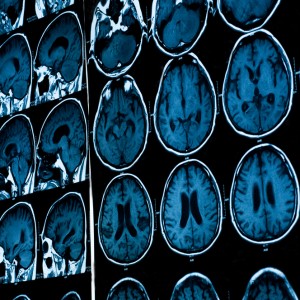Alzheimer’s Patients Develop Criminal Behavior Due to Neural Dysfunction

 Neurodegenerative diseases such as Alzheimer’s can provoke a neural dysfunction that affects the patient’s behavior, leading to criminality. This is according to a research recently published in the journal JAMA Neurology. Despite the concerning results, the scientists noted that Alzheimer’s patients were among the least likely to developing this kind of neural dysfunction and, therefore, are not likely to commit crimes as a result of their condition.
Neurodegenerative diseases such as Alzheimer’s can provoke a neural dysfunction that affects the patient’s behavior, leading to criminality. This is according to a research recently published in the journal JAMA Neurology. Despite the concerning results, the scientists noted that Alzheimer’s patients were among the least likely to developing this kind of neural dysfunction and, therefore, are not likely to commit crimes as a result of their condition.
The study entitled “Criminal Behavior in Frontotemporal Dementia and Alzheimer Disease” revealed that neurodegenerative conditions affect the neural structures, causing a dysfunction in judgment and executive functions, emotional processing, sexual behavior, violence and self-awareness. The researchers concluded that this dysfunction is able to cause both antisocial and criminal behavior.
“The findings from this study suggest that individuals who care for middle-aged and elderly patients need to be vigilant in the diagnosis of degenerative conditions when behavior begins to deviate from the patient’s norm and work hard to protect these individuals when they end up in legal settings,” the authors of the study stated in a press release.
The study was conducted by Madeleine Liljegren, M.D., of Lund University, Sweden, Georges Naasan, M.D., of the University of California, San Francisco, and other coauthors, and included the analysis of both types and frequencies of criminal behaviors undertaken by dementia patients. In order to accomplish this, the researchers examined medical records of 2,397 patients who visited the University of California, San Francisco’s Memory and Aging Center between the years of 1999 and 2012.
Among the sampled patient records, the researchers noted 545 individuals who suffer from Alzheimer’s, 171 participants with a behavioral variant of frontotemporal dementia (bvFTD, manifests in major personality changes), 89 individuals with a semantic variant of primary progressive aphasia (language declines) and 30 individuals with Huntington disease.
Within their medical review, the researchers observed 204 (8.5%) of 2,397 patients registered criminal behavior thought to be related with the disease. When they ranked the occurrence of criminal behavior according to disease, they concluded that 7.7% (42) of Alzheimer’s patients, 37.4% of those with bvFTD, 27% of those with a semantic variant of primary progressive aphasia, and 20% of those with Huntington disease registered criminal behavior.
The most common criminal behavior found in the group of patients with bvFTD, the disease with highest probability of developing these kind of behavior, were theft, traffic violations, sexual advances, trespassing and public urination. On the other hand, traffic violations were the most typical transgressions committed by Alzheimer’s patients, and are thought to be associated with memory loss.






